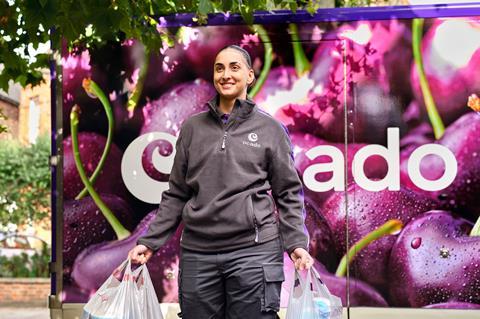
Online grocery growth in the UK has been held back by the exit of rapid delivery players who made “ludicrous” claims about their potential, according to Ocado CEO Tim Steiner.
Commenting as Ocado Group announced its interim results this morning, Steiner said “the global channel shift to online has now resumed” after “an unprecedented period” of “multiple years of high food inflation following a surge in demand during the pandemic”.
“I think in every market we can see online is picking up and expected to carry on picking up,” he said.
But he said the retreat of rapid delivery players such as Gorillas and Getir had “knocked it back a little bit” in the UK.
Getir and Gorillas were among a number of rapid delivery players to expand quickly during the pandemic, promising orders to doors in as little as 15 minutes.
But while the services proved popular initially, the sector struggled when lockdowns lifted. Consolidation followed, with Getir acquiring rivals including Gorillas in December 2022, before announcing its retreat from the UK and a number of other markets in April this year to “focus its financial resources on Turkey”, where it launched in 2015.
Steiner said: “There was a lot of talk about two years ago that they were going to come into the UK and take all the market share and destroy Ocado Retail – like Gorillas and Getir, obviously leaving the market.
“I remember Gorillas saying they were going to be bigger than Ocado Retail by the first half of 2022. And I don’t think they got much beyond 2% of Ocado Retail’s size by the time they left the market.
“There were some ludicrous statements being made and a view that all groceries in the UK were going be sold in baskets of three or four with people taking multiple deliveries every day.”
Ocado Retail revenues in the UK increased by £11.3% to £1.31bn in the six months to 2 June 2024, primarily reflecting strong growth in active customers and growing order volumes, according to the trading update.
The business has been growing well ahead of UK online grocery as whole, which was up 4% year on year in June [Kantar 12 w/e 9 June].

Steiner said “numbers have been coming out of the market” and “once you see that flush through, I think you’ll see the online market – the channel overall – having stronger year on year growth”.
“We told you back then that their model wasn’t sustainable, that it didn’t have any automation in it, that it was too manually intensive and that delivering those extremely small orders was going to prove to be very difficult,” he said.
Getir’s retreat from the UK also saw it sell customer information to Ocado so that its own on-demand delivery service, called Zoom, could send them marketing communications and promotions.
Ocado Zoom launched its first site, in Acton, West London, in 2019, with two more highly automated dark stores opening in east London in 2022. The same year saw Zoom expand beyond the capital, with a site in Leeds, but that closed along with Ocado Retail’s Hatfield customer fulfilment centre following a network capacity review last year.
Steiner said Zoom had “an exciting potential future” but added: “I just don’t think that the immediacy-premium market will ever be as large as the big basket market.”
He added: “You’re seeing significant growth from some others in the market that are leveraging their existing customer bases and delivery channels that they have, from delivering hot food from restaurants for example.
“So, I don’t think it’s going away as a product. I just think that you’ve always got to focus on how you do things and cost structures and efficiencies.
“And I think Covd drove [such] a level of demand that people kind of lost focus.”
New Kantar data this week had Ocado Retail as the fastest-growing grocer for the fifth month in a row, with sales up 10.7% year on year in the 12 weeks ending 7 July. Its market share stands at 1.8%, up from 1.7% a year ago.
Ocado Retail CEO Hannah Gibson told The Grocer the growth was down to improved “choice, service and value”, along with marketing.
“We have been so focused on improving our proposition, which has really improved materially in the last 12 to 18 months,” she said.
“For customers, that means we’re offering better choice, including M&S. Even better service, so improved availability, more perfect orders – that’s orders on time and with no substitutions. And improved value.”
Value moves had included dropping the price of 2,000 products in the last six months, she said.
“Secondly, we’ve been really focusing very hard on our acquisition model. So, getting the right marketing channels, focusing on bringing those customers into the business and then making sure we do the right things to get them to stick with us.”







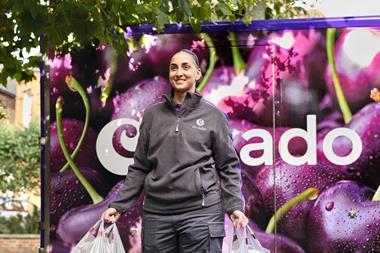
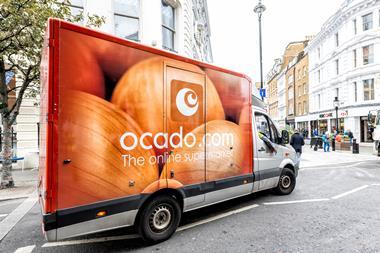
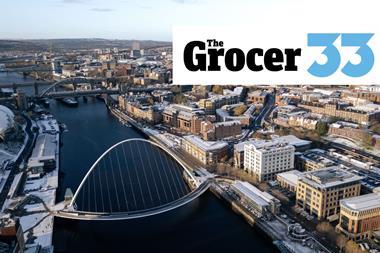
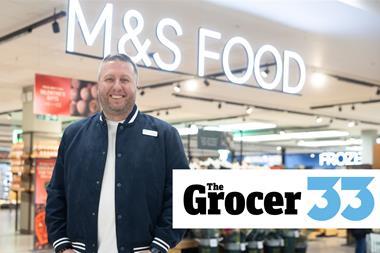
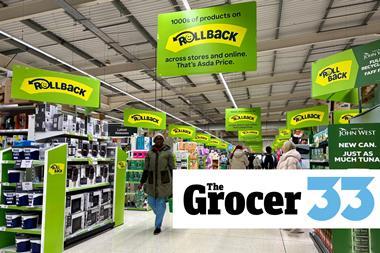
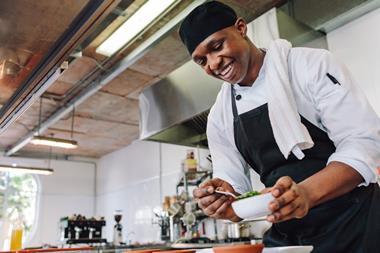

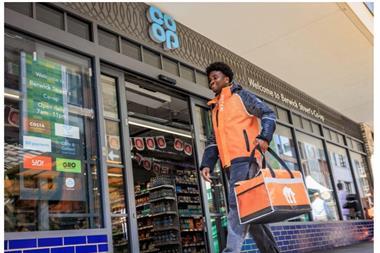


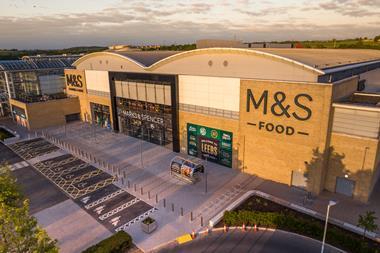

No comments yet